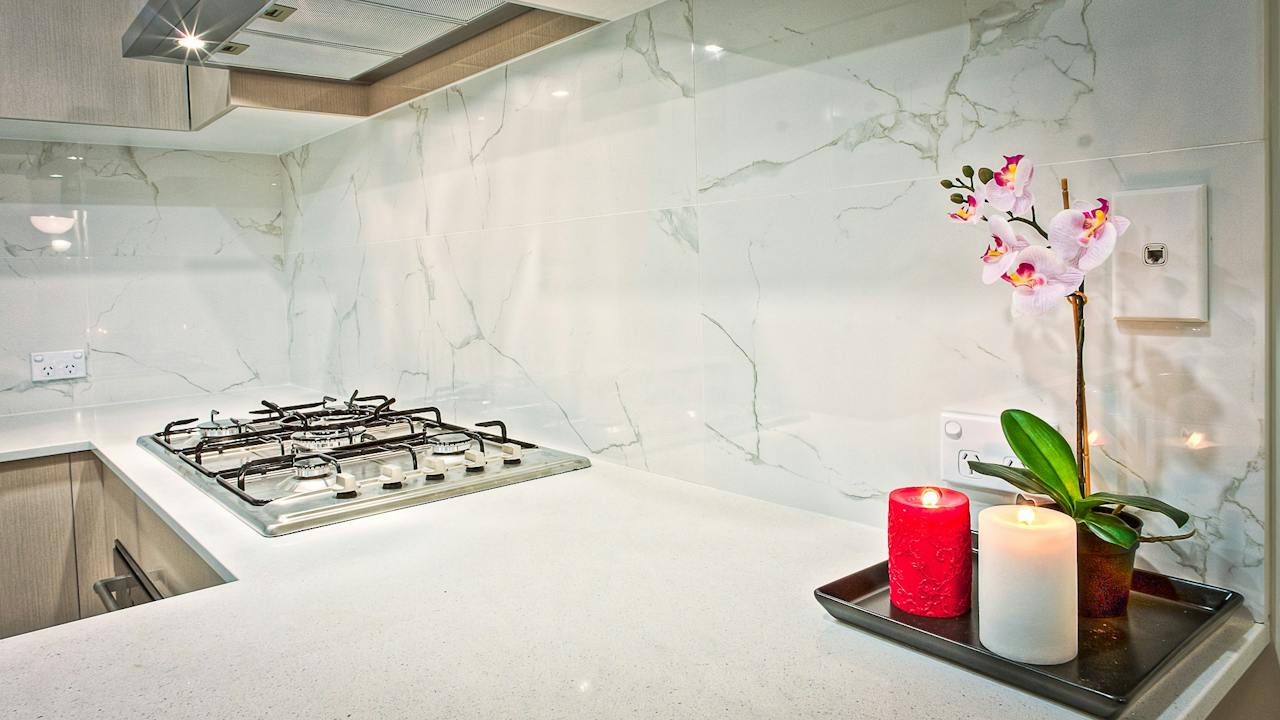The kitchen is the heart of the home, and its worktops are its most used and visible features. Keeping them in good condition not only enhances the aesthetic appeal of your kitchen but also extends their longevity. This guide provides practical tips to maintain and care for your kitchen worktops.
Understanding Your Worktop Material
Different worktop materials require different care techniques. Whether you have granite, marble, laminate, wood, or stainless steel, understanding the nature of your worktop material is the first step in proper maintenance. For example, granite is durable but can be prone to staining, whereas wood needs regular oiling to maintain its look and durability.
Regular Cleaning Routine
Keeping your worktops clean is fundamental. Use a soft cloth and a mild detergent and water for daily cleaning. Avoid abrasive cleaners or scrubbers, especially on sensitive materials like marble or laminate. For tougher stains, specific cleaning methods can be applied based on the worktop material.
Immediate Stain and Spill Management
Spills, especially acidic substances like lemon juice, wine, or vinegar, should be wiped off immediately to prevent staining or etching, particularly on porous surfaces like marble or granite. Blot spills rather than wiping them to avoid spreading the spill.
Avoiding Scratches and Cuts
Prevent scratches on your worktops by using cutting boards. Even materials that are touted as scratch-resistant, like granite or stainless steel, can sustain damage over time with direct cutting or dragging of metal utensils and pots.
Protecting from Heat Damage
Protect your worktops from heat exposure. While materials like granite and stainless steel can withstand heat, prolonged exposure can lead to discoloration or damage. Use trivets or heat pads when placing hot pots and pans on any worktop surface.
Regular Sealing for Certain Materials
Materials like granite, marble, and wood require regular sealing to maintain their resistance to damage. Check with the manufacturer or a professional for the recommended frequency of sealing and the appropriate products to use.
Managing Chips and Scratches
Even with the best care, worktops can get chipped or scratched. Surface chips in materials like laminate or wood can often be filled with a matching filler or sealant. For deeper scratches or chips, especially in stone, it may be best to consult a professional.
Using the Right Cleaning Tools
Always use non-abrasive tools for cleaning. Soft cloths, sponges, and microfiber are ideal. Steel wool or harsh scrubbers can leave permanent scratches on many surfaces, especially on softer materials.
Avoiding Harsh Chemicals
Harsh chemicals like bleach, ammonia, or chlorine can damage the worktop surface. Natural stone surfaces, in particular, can be etched or dulled by acidic or harsh cleaners. Always opt for mild detergents or cleaners specifically designed for your type of worktop.
Minimising Direct Sunlight Exposure
Continuous exposure to direct sunlight can fade and discolor certain worktop materials, such as laminate and wood. Use window coverings or UV-protective film to minimise this effect, especially if your kitchen receives a lot of direct sunlight.
Effective Organising to Reduce Wear
Organise your kitchen workflow to minimise wear and tear on certain areas. Distribute kitchen tasks across different sections of your worktop to avoid concentrated damage in one area.
Handling Heavy Objects with Care
Be careful with heavy objects like cast iron pans or large ceramic dishes. Dropping these on your worktops, especially on granite or marble, can lead to chips or cracks.
Regular Polishing for Shine and Protection
For materials like granite, marble, and stainless steel, regular polishing can keep them looking brand new. Use products specifically designed for your worktop material, and follow the steps exactly as instructed for the best results.
Water Damage Prevention
Avoid leaving standing water, especially near seams or edges. Prolonged exposure to water can cause wood to warp or laminate to peel. Be vigilant in areas around sinks and dishwashers.
DIY Repairs and When to Call a Professional
Some minor repairs like small scratches or stains can be handled with DIY methods. However, for major damages like large cracks, significant fading, or deep stains, it’s advisable to consult a professional. They can examine the damage and suggest the best course of action, which sometimes can be less costly than a complete replacement.
Conclusion
Maintaining your kitchen worktops requires a combination of regular cleaning, prompt spill management, careful use, and understanding the specific needs of your worktop material. By following these tips, you can keep your kitchen worktops looking as good as new for years to come, enhancing both the functionality and aesthetics of your kitchen space.

